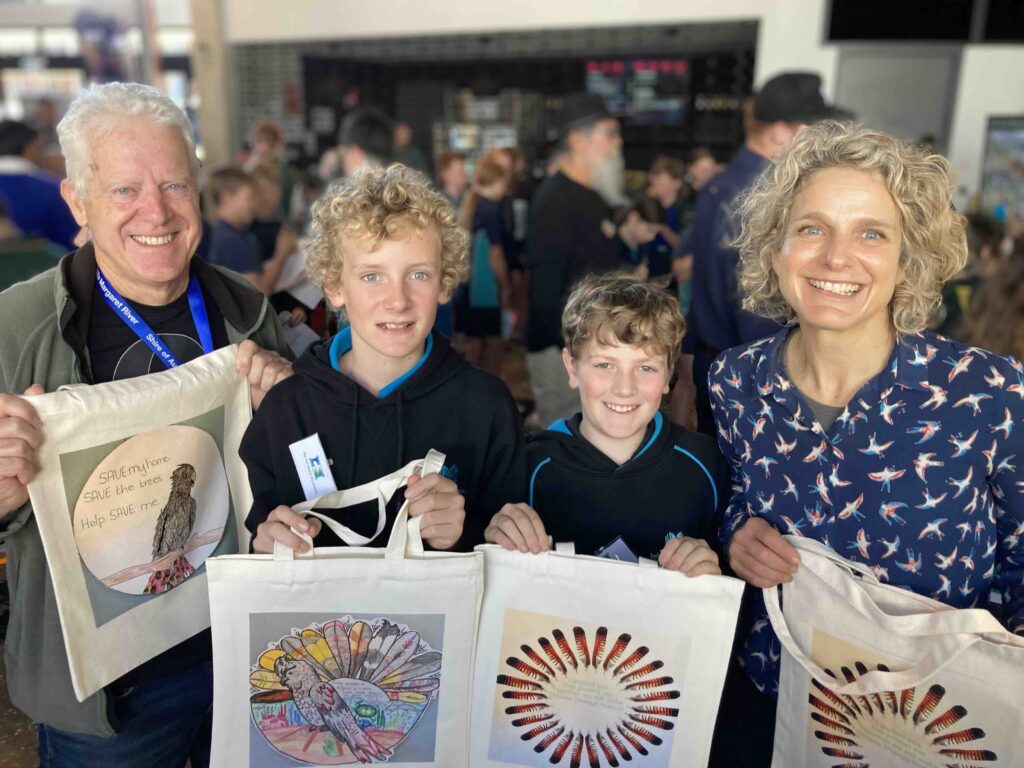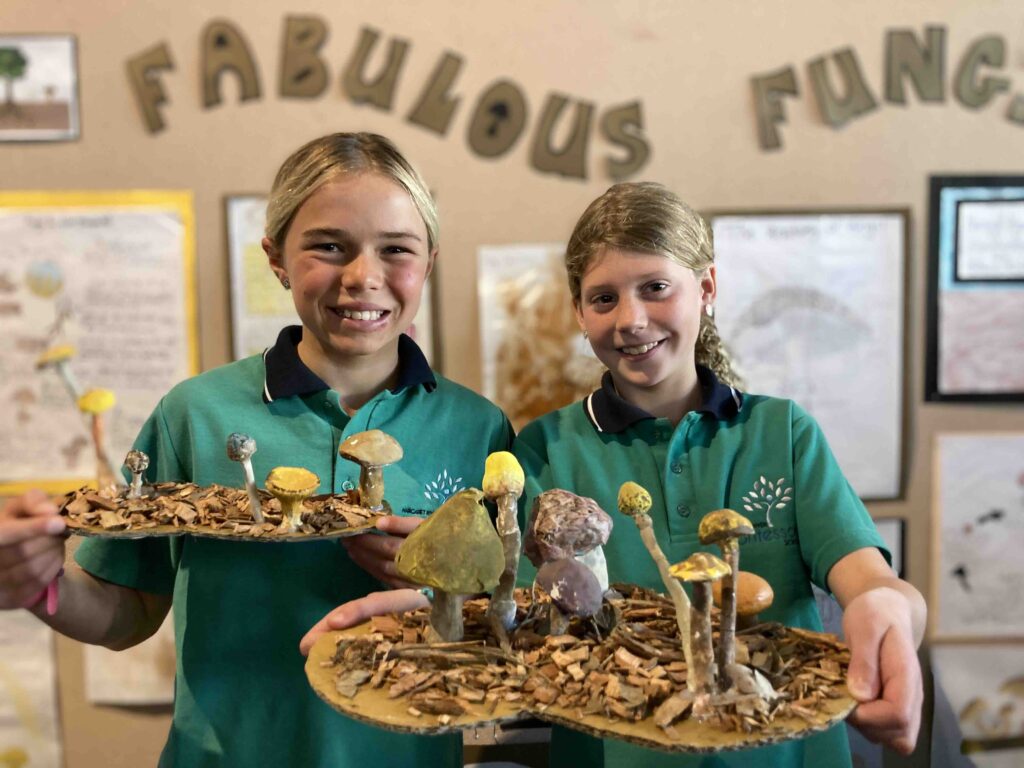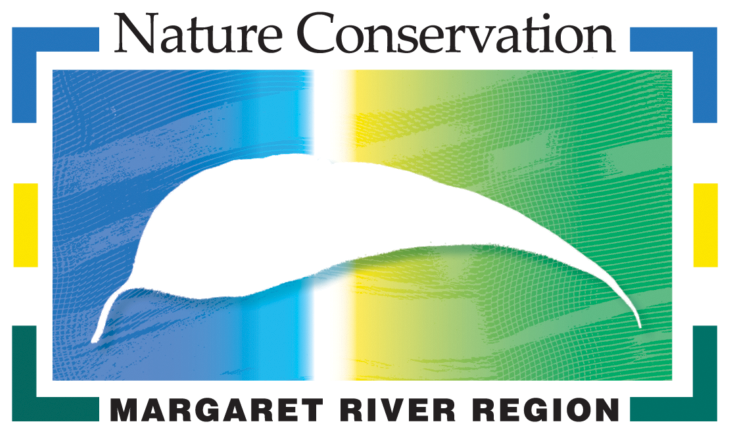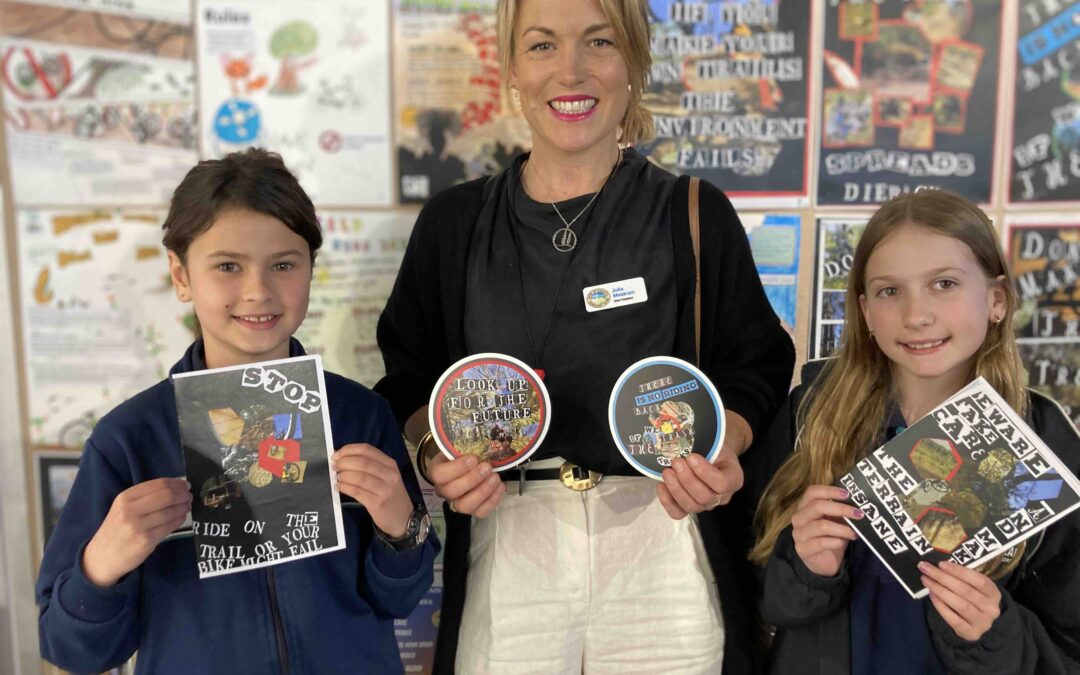The incredible and inspiring actions of local students to protect our environment were on show at the annual Our Patch celebration at the Margaret River Heart today.
Our Patch is one of the youth education programs run by Nature Conservation Margaret River Region, and the Year 6 students from five schools across the region wowed shire councillors, parents, teachers and the community with the projects they’ve worked on this year.
Shocked by the numbers of trees that died in the Margaret River catchment during the dry summer, Margaret River Independent School students teamed up with University of WA researcher Dr Tim Langlois and and Undalup Association’s Wadandi rangers. They explored extreme weather, analysed a century of rainfall and temperature data, tested water quality at Kevill Falls, and decided to take local action on climate change by replanting along Wooditjup Bilya. The students also met with renowned conservationist Jane Goodall and wrote to Prime Minister Anthony Albanese to call for more action on climate change. Not content with that, the youngsters then started a local education campaign on the impacts of climate change on wildlife and are raising funds for the Capes Raptor Centre by selling tote bags and waterproof stickers.

Councillors Greg Boland and Tracey Muir with Margaret River Independent School students in the Our Patch program
St Thomas More Primary School students were fascinated by the construction of the fish way at Barret Street Weir and the migration of the pouched lamprey, a native species which evolved before the dinosaurs and is found in just a few South-West rivers including Wooditjup Bilya. The students tested water quality, researched how lower stream flow affects lampreys, and started a lamprey education campaign which featured a rap song, animated book, slogans to stop people digging out the Margaret River mouth, and even lamprey puppets to highlight this special aquatic species.
Margaret River Montessori School students were intrigued by the fungi in their Yalgardup Brook catchment, inspiring them to carry out a fungi survey in their local wetland, catalogue the varieties and study some of the specimens they found. Then they launched fungi restoration project with Nature Conservation staff and fungi expert Dr Sapphire McMullan-Fisher from the Fungi For Land project. They reintroduced mycorrhizal fungi – which are beneficial fungi that grow in association with and are beneficial to plant roots – by weeding and mulching a degraded bank and planting it with native seedlings that were first inoculated with fungal spores collected by the kids. Now the site will be monitored to test where the fungi restoration is successful.

Margaret River Montessori students at the Our Patch presentation
Rapids Landing Primary School students explored how nature and mountain biking can successfully coexist, meeting experts and stakeholders, and working with the Shire of Augusta Margaret River to develop signage and artwork encouraging riders to respect the forest and trails. They also carried out biodiversity surveys and planted natives in Brookfield’s bushland mountain bike skills area.
Meanwhile, Margaret River Primary School students have been on a mission to conserve our native snake-necked turtles, learning all about the apex freshwater predator from renowned Murdoch University researcher Steve Beatty, creating turtle-inspired animation and artwork, and planting hundreds of natives along the Margaret River to boost turtle habitat. They also designed and printed their own turtle T-shirts, which are available for $25 at the MRPS front office with all proceeds used to support students carry out turtle habitat restoration along Wooditjup Bilya.
Nature Conservation’s Our Patch program involves eight classes of Year 6 students from five schools across the Capes region. Each class learns about their local catchment from scientists, landholders and cultural custodians before zeroing in on a unique environmental issue and devising innovative solutions.
The exciting nature-based learning culminated this week when each class presented their project and outcomes at the Our Patch celebration, which also doubled as a science fair for the kids. Cultural custodian Zac Webb provided a moving introduction and welcome to country.
“You have all delivered the most amazing projects, and you should really feel proud,” Nature Conservation Our Patch project officer Peta Lierich told the students.
Shire president Julia Meldrum (pictured at top of page) said the Our Patch presentation was a culmination of a year’s hard work by more than 170 students doing a total of 2000-plus hours of place-based environmental education, coming up with “innovative solutions to protecting our catchments”. “To all the students here today I say a very big thank-you,” she said. “This Our Patch project is so incredible. It’s so wonderful, and good on you for all the good work you’ve done.”
Margaret River Primary School principal Chris Walker said: “We think Our Patch is such a great project – a good way for the kids to give back to community, support better sustainability, and have real-life experiences. Our community, our land, is in safe hands with our young kids.”
Wadandi elder Wayne Webb said this year’s Our Patch projects were particularly impressive as the program goes from strength to strength. “I watch this every year, but this year it has gone above and beyond my expectations. I’m really impressed,” he said.
Councillor Tracey Muir said she was “blown away” by the kids’ projects which have generated so many real-life environmental outcomes. “The kids are so inspiring. It epitomises our community of people who really care and want to make a difference and are actually doing things on the ground to care for country,” she said.
Nature Conservation ambassador and local author Jane Scott said the presentation was a “fantastic exhibition and such a testament to all the kids’ wonderful work”. “Brilliant – well done,” she added. Meanwhile, Margaret River Montessori School teacher Rosemary Campbell said: “I love Our Patch and the ecology journey that my children have been on this year.”
Our Patch is generously funded by the Paskeville Foundation, Shire of Augusta Margaret River, Lions Club of Cowaramup, Margaret River Rotary and participating schools. Our Patch officer Lauren Scanlon also said a huge thank you to teachers, parents, students, local businesses, scientists and volunteers who all contributed to the school projects.

